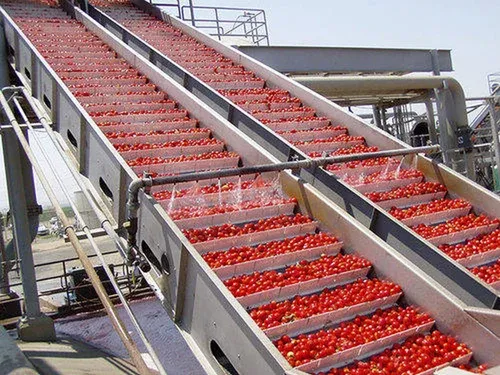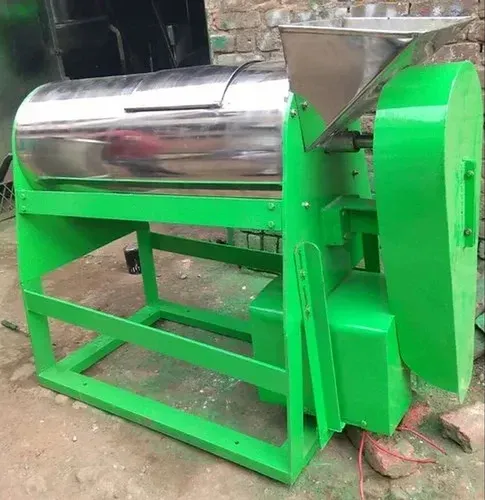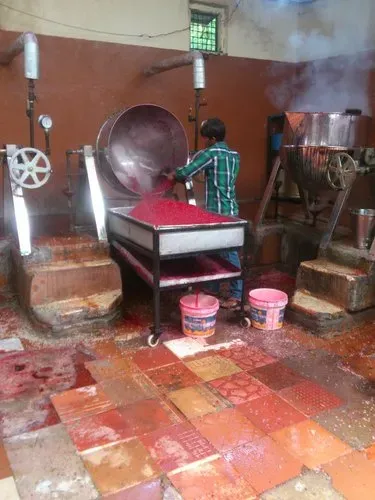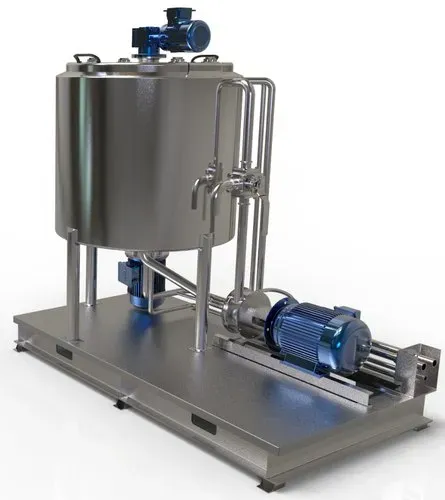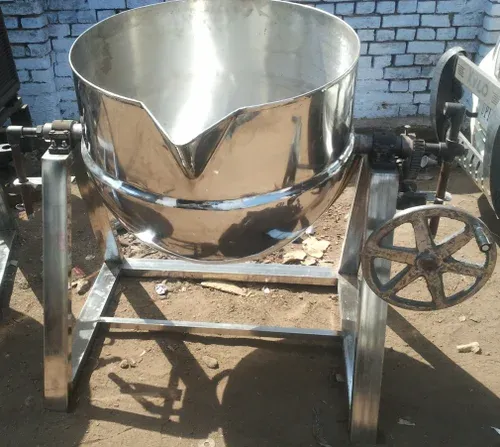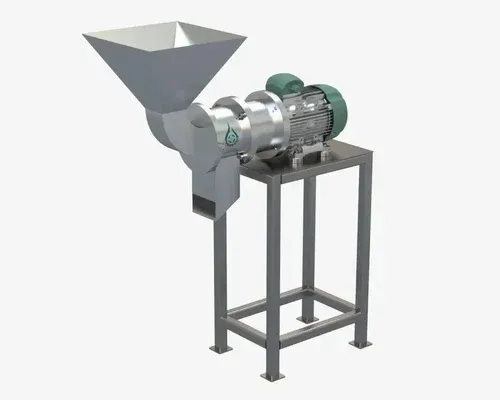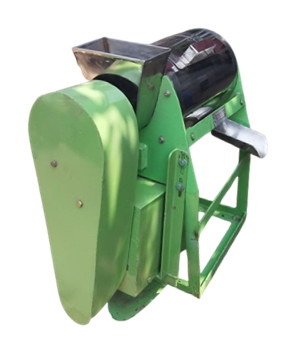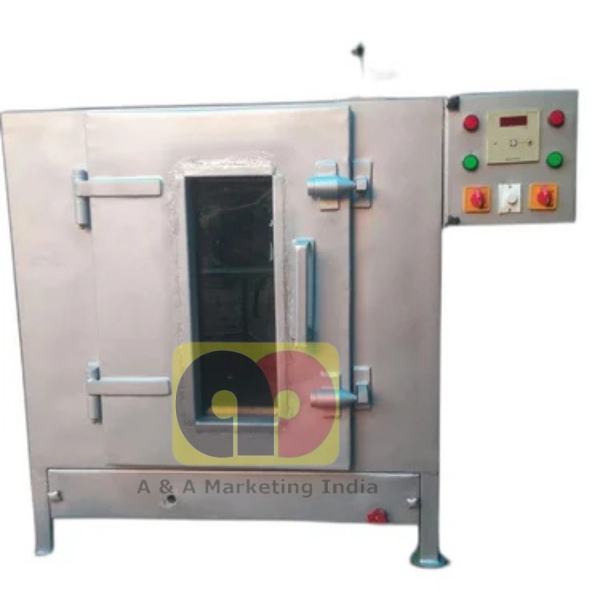Features of Tomato Ketchup Manufacturing Process:
Advanced Processing Equipment: The plant is equipped with state-of-the-art machinery for washing, sorting, and processing tomatoes. This includes tomato puree machines, blenders, and cookers that ensure the tomatoes are effectively turned into a smooth, consistent paste.
Automated Mixing Systems: To achieve the perfect flavor and texture, the plant features automated mixing systems that blend tomato paste with ingredients like vinegar, sugar, and spices in precise quantities.
High-Efficiency Cookers: Cookers or heat exchangers are used to heat the tomato mixture to the right temperature, which is crucial for developing the ketchup’s flavor and ensuring proper preservation.
Quality Control Systems: Stringent quality control systems are in place to monitor every stage of production, from raw tomato intake to final packaging. This includes testing for consistency, flavor, and safety to ensure the final product meets industry standards.
Hygienic Processing Areas: Maintaining high hygiene standards is essential. The plant is designed with sanitary processing areas, including stainless steel surfaces and easy-to-clean equipment to prevent contamination.
Efficient Packaging Solutions: The plant incorporates automated packaging lines for bottling or pouching the ketchup. This includes filling machines, capping machines, and labeling systems to ensure accurate and efficient packaging.
Waste Management Systems: Effective waste management systems handle by-products and waste materials, such as tomato skins and seeds, which can be repurposed for other uses or properly disposed of.
Energy Efficiency: Modern ketchup plants are designed with energy-efficient technologies to minimize energy consumption and reduce operational costs.
Flexible Production Capabilities: The plant is often equipped to handle varying production volumes and can adapt to different recipes or product variations, providing flexibility in manufacturing.
Automation and Control: Automation systems control various aspects of the production process, from temperature and pressure to ingredient mixing, ensuring consistency and reducing manual labor.
Key Aspects of Tomato Processing Line
Tomato Processing Plant: A dedicated tomato processing plant is where the magic happens. This facility is equipped to handle large volumes of tomatoes, converting them into various products through a series of carefully controlled processes.
Tomato Sauce Making Machine: To create high-quality tomato sauce, a tomato sauce making machine is used. This machine efficiently combines tomatoes with spices and other ingredients, ensuring consistent texture and flavor.
Tomato Puree Machine: For producing smooth and rich tomato puree, a tomato puree machine is employed. This equipment processes tomatoes into a concentrated form, ideal for use in sauces, soups, and other culinary applications.
Tomato Paste Factory: A tomato paste factory focuses on turning tomatoes into a thick, concentrated paste. This process involves reducing the tomato’s water content to create a dense, flavorful product used in various dishes and as a base ingredient.
- Tomato Sauce Making Process: The tomato sauce making process involves washing, blanching, peeling, crushing, simmering with spices, and bottling for preservation.
A tomato ketchup plant is a facility where tomatoes are processed and turned into ketchup. The process typically involves washing and sorting the tomatoes, then crushing and pureeing them to create a tomato paste. The tomato paste is then mixed with other ingredients such as vinegar, sugar, and spices to create the final product, which is then packaged and distributed to stores.
The process of creating ketchup can vary from plant to plant, but generally, the tomatoes are cooked and processed in large vats or tanks. The plant may also have equipment for sterilizing and filling the ketchup bottles or packaging.
Tomato ketchup plants can range in size from small, family-owned businesses to large, multinational corporations. Many of the major food companies have their own tomato ketchup plants, while others may contract with third-party manufacturers to produce their ketchup.
A & A Marketing India is a leading manufacturer and supplier of Tomato Ketchup Plant in India, The processing of tomato machines is a multifaceted industry that transforms fresh tomatoes into tomato ketchup manufacturing plant cost of valuable products. From the raw processing tomato machine to end products like sauces and pastes, each stage involves specialized equipment and expertise. Here’s a detailed look at the key components of this process:
| Capacity | 225 Kg |
| Automation Grade | emi-Automatic |
| Material of Construction | Stainless Steel |
| End Product | Pulp/Puree |
| End Packaging | Aseptic Drums |
| Suitable for | Tomato |

